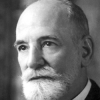Rene Cassin

Rene Cassin
René Samuel Cassinwas a French jurist, law professor and judge. The son of a French-Jewish merchant, he served as a soldier in World War I, and later went on to form the Union Fédérale, a leftist, pacifist Veterans organisation. He received the Nobel Peace Prize in 1968 for his work in drafting the Universal Declaration of Human Rights, adopted by the United Nations General Assembly on 10 December 1948. That same year, he was also awarded one of the UN's...
NationalityFrench
ProfessionJudge
Date of Birth5 October 1887
CountryFrance
The International Labor Organization was the only agency with a broad mandate, limited moreover to the protection of the rights of workers as such.
When France resolved, along with England, to lend assistance in the legitimate defense of Poland, the realization burst on us that a conflict of awesome proportions was inevitable.
We were thus led to organize ourselves, as men who had fought the war together, in order to support those statesmen who had truly understood the lessons of that World War, thus attempting to prevent its recurrence.
The implementation measures of both Covenants, but especially those of the Covenant concerning civil and political rights, were considerably weakened to the point where they assumed an optional character.
As a consequence of these hesitations and of the vague character of such innovations, the Commission on Human Rights itself had doubts from the beginning about its role and its functions in general.
How is it that, once victory took form and the horrible spectacle of the extermination camps was revealed, we could have shamelessly broken the promises given to the peoples in those years of ordeal?
In less than eighteen months, it prepared a first draft which it submitted to the General Assembly and which, at the end of one hundred sessions of elevated, often impassioned discussion, was adopted in the form of thirty articles on December 10, 1948.
The other salient characteristic of the Declaration is its universality: it applies to all human beings without any discrimination whatever; it also applies to all territories, whatever their economic or political regime.
Similarly, the problem of the rights of the state in the disposition of inheritances left by individuals presents social aspects of the first importance.
The single outstanding exception was the broad yet precise mandate communicated by the General Assembly in 1946 to prepare as soon as possible the Charter of Human Rights which the San Francisco Conference had not had the time or the courage to draw up.
The exploitation of women, mass hunger, disregard for freedom of conscience and for freedom of speech, widespread and racial discrimination all these evils are far too prevalent to be overlooked.
The only compensation, gained through the influence of nongovernmental organizations, consisted in slightly broadening for private individuals the possibility of access and appeal to the agencies enforcing the Covenant concerned with civil and political rights.
The Covenant of the League of Nations had envisaged sponsoring only the protection of certain categories of men: national minorities and populations of territories controlled by other countries.
As corollaries to the right of every individual to life and to full participation in society, the Declaration incorporated in the list of human rights the right to work and a certain number of economic, social, and cultural rights.